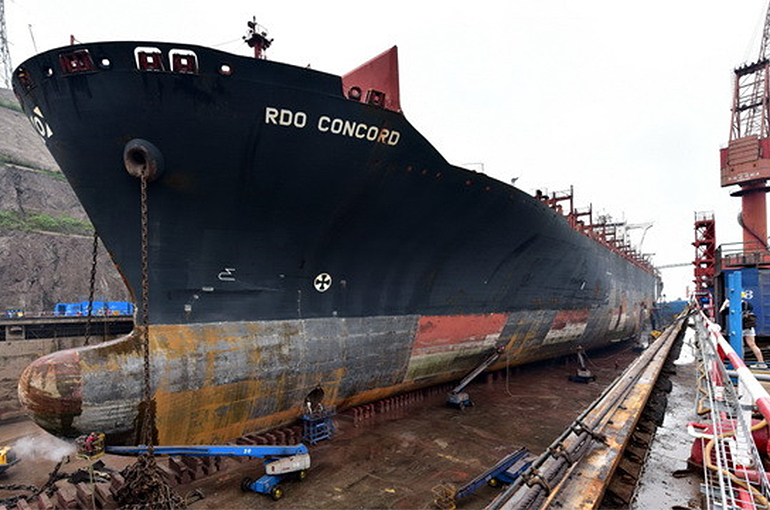 US Likely Probe Into China's Shipbuilding Industry to Affect New Orders, Freight Forwarding, Expert Says
US Likely Probe Into China's Shipbuilding Industry to Affect New Orders, Freight Forwarding, Expert Says(Yicai) March 15 -- The US trade policy regulator is mulling initiating a 301 investigation into China's shipbuilding industry, which could potentially impact new ship orders and freight forwarding, according to a senior partner of global law firm Dentons' trade remedies legal team.
According to regulations, the United States Trade Representative must decide if to launch the probe within 45 days or by April 26, Sun Lei noted. There is a high chance that the investigation will ultimately be initiated, and once started, it will likely last for around one year, Sun added.
A 301 investigation, under Section 301 of the Trade Act of 1974, allows the USTR to probe unfair trade practices by foreign entities and enforce tariffs or other sanctions to protect US interests.
The United Steelworkers, International Association of Machinists and Aerospace Workers, International Brotherhood of Boilermakers, International Brotherhood of Electrical Workers, and Maritime Trades Department submitted a request to the USTR to initiate the 301 investigation on March 12.
They proposed imposing port charges on Chinese shipbuilding to subsidize the domestic construction of ships. They also suggested the United States and allied nations stop using China's transportation and logistics public information platform Logink in existing ports, develop an independent logistics system, and assess the national and economic security risks of continuing to use port infrastructure.
From the supply end, reducing demand for Chinese shipbuilding will squeeze the survival space of suppliers, including steel, turbines, engines, and service providers, according to Sun. From the demand side, Chinese shipbuilding exporters engaged in international trade will face increased transportation costs, potential market access barriers, and other risks.
In response to the 301 investigation, companies should increase their investment in overseas markets, especially in countries or regions less affected by trade remedy measures, and reduce dependence on any single market, Sun pointed out.
They should also enhance their compliance awareness, as compliance with country-specific trade remedy regulations can improve a firm's ability to provide evidence in response to trade measures and balance the relationship between investment projects, trade compliance risk costs, and business objectives and interests, Sun added.
"The relevant US organizations are not applying for an anti-subsidy investigation, but are instead applying for a 301 investigation, indicating the possibility of the US once again bypassing World Trade Organization rules to take trade protection measures," said Cui Fan, professor at the School of International Trade and Economics of the University of International Business and Economics and director of the China Society for World Trade Organization Studies' research department.
Editor: Martin Kadiev